
Kathleen Knight Abowitz
Professor of Educational Leadership, Miami University
I am a professor in the Department of Educational Leadership, focusing on educational philosophy and foundations since 1995 at Miami University in Oxford, OH. I publish research in political and moral philosophy of education; have worked in leadership roles in The John Dewey Society, American Educational Studies Association, the North American Philosophy of Education Society and the Ohio Valley Philosophy of Education Society. I teach courses in democracy and education, ethics and education, and leadership ethics. I served as an elected school board in Talawanda City Schools from 2019-2023.
Less ![]()
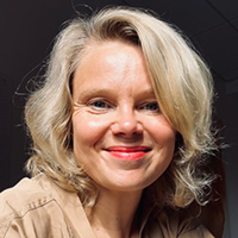
Kathrin Wagner
Associate Professor in Art History, Liverpool Hope University
I studied Art History and Italian in Berlin (Germany) and Siena (Italy) and gained my BA, MA and PhD from the Free University Berlin. After working in museums in Berlin and New York, I joined Liverpool Hope University from Cardiff University in 2011.
My role is divided into two major strands. I currently act as Associate Dean (Student Experience) in the Faculty of Creative Arts and Humanities. I also work as Associate Professor in the Art History team, where I teach and supervise Art History, Fine Art and Graphic Design students.
My research focuses on the late medieval and premodern period. It includes northern European ecclesiastical art work and its role and function within a variety of communities but also the investigation of movement and migration of visual artists. Another strand of my research is the exploration of gender and sexuality in imagery of swimming and bathing in premodern art, which is discussed in a monograph I am currently preparing (publisher Routledge).
Less ![]()
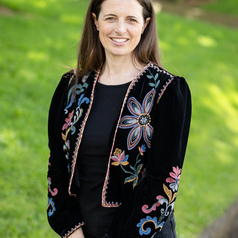
Kathryn Bradbury
Senior Research Fellow in the School of Population Health, University of Auckland, Waipapa Taumata Rau
I have a BSc, MSc, and PhD in Human Nutrition from the University of Otago, New Zealand.
Less ![]()
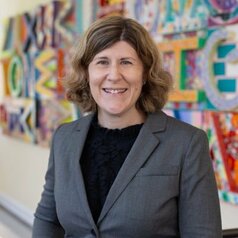
Kathryn Chapman
Clinical Assistant Professor of Early Childhood Studies, University of Florida
Kathryn (Katy) Chapman (she/her) is a Clinical Assistant Professor of Early Childhood Studies for the School of Special Education, School Psychology, and Early Childhood Studies in the College of Education at the University of Florida. Her research interests focus on the intersection of policy, leadership, and financial investments to address inequities across early childhood systems. Prior to pursuing her Ph.D., Dr. Chapman was a Kindergarten and Preschool teacher in Virginia, Wisconsin, and Arizona, and she worked as a Confidential Assistant with the Early Learning Team in the Office of the Secretary at the United States Department of Education. She holds a Ph.D. in Educational Policy and Evaluation, focusing on Early Childhood Policy, from the Mary Lou Fulton Teachers College, Arizona State University.
Less ![]()
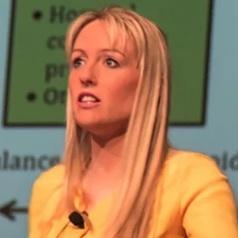
Kathryn Eastwood
Lecturer, Paramedicine, Monash University
Kathryn Eastwood is a Mobile Intensive Care Ambulance (MICA) Paramedic, Registered Nurse (division 1) and University Academic. She has worked for Ambulance Victoria since 2000 and has worked for Monash University since 2003. Kathryn has also been a member of the Monash University Human Research Ethics Committee since 2010. Her experience in academia ranges from teaching, curriculum design, course coordination and research. She has been involved in the education and cirriculum design for military personnel, Victoria Police and Ambulance Victoria personnel, medical students, nursing students, and paramedic students.
Less ![]()
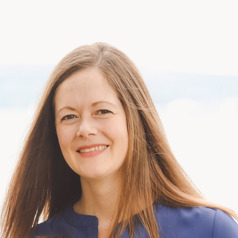
Kathryn Fiorella
Cornell University, Cornell University
I am an environmental scientist and epidemiologist, and my research aims to understand the interactions among environmental change and livelihood, food, and nutrition security. My work is focused on global fisheries and the households that are reliant on the environment to access food and income. I use interdisciplinary methods and my work aims to foster a deeper understanding of how ecological and social systems interact, the ways communities and households adapt to and mitigate environmental change, and the links between human well being and ecological sustainability.
I hold a PhD in environmental science, policy & management and a Master of Public Health from the University of California, Berkeley, and an AB in ecology and evolutionary biology from Princeton University.
Less ![]()
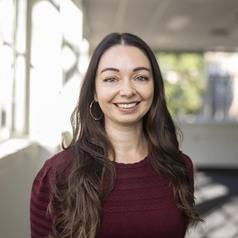
Kathryn Fletcher
Senior Research Associate, National Centre for Clinical Research on Emerging Drugs, UNSW Sydney
Dr Kathryn Fletcher is a clinician researcher with over 15 years of experience in the field of mental health. She has published widely on phenomenology, psychological factors and treatments for psychiatric conditions, and digital health interventions. Her current research focuses on developing novel treatments for people who use stimulants, with an interest in expanding the evidence base for psychedelic-assisted therapies. Kathryn is a registered Clinical Psychologist with the Australian Health Practitioner Regulation Agency (AHPRA) and completed her PhD examining the psychological profile of bipolar disorder.
Less ![]()
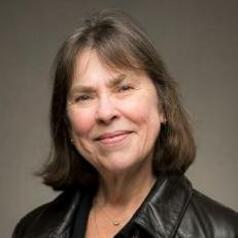
Kathryn Higley
Distinguished Professor of Nuclear Science and Engineering, Oregon State University
Kathryn Higley’s fields of interest include environmental transport and fate of radionuclides, radioecology, radiochemistry, radiation dose assessment, neutron activation analysis, nuclear emergency response, and environmental regulations. She has held both reactor operator and senior reactor operator’s licenses and is a former reactor supervisor for the Reed College TRIGA reactor. Higley has been at Oregon State University since 1994 teaching undergraduate and graduate classes on radioecology, dosimetry, radiation protection, radiochemistry, and radiation biology. She spent fourteen years with Pacific Northwest National Laboratory as an environmental health physicist at the Hanford Nuclear Reservation and three years in environmental radiation monitoring at the Trojan Nuclear Power Plant in Oregon. Kathryn Higley is a professor, and previously led the School of Nuclear Science and Engineering in the College of Engineering at Oregon State University for a decade. She has managed OSU’s Radiation Health Physics program, including developing its online graduate degree, into the largest in the country. Dr. Higley has been at Oregon State University since 1994. She was the Chair of the International Commission on Radiological Protection’s Committee 5: Protection of the Environment, and currently is a council member of the National Council on Radiation Protection and Measurements (which advises the US Government on radiation safety issues). She served as a Board Member (2020-2023) and is a Fellow of the Health Physics Society. She is a Certified Health Physicist. More recently she served as associate director of the TRACE project, Oregon State’s multidisciplinary effort to monitor prevalence of COVID-19 at OSU campuses and statewide. She recently assumed the role of Interim Director of the Center for Quantitative Life Sciences at OSU. In 2022 she was named an OSU Distinguished Professor of Nuclear Science and Engineering.
Less ![]()
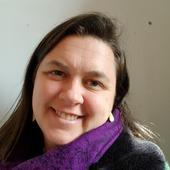
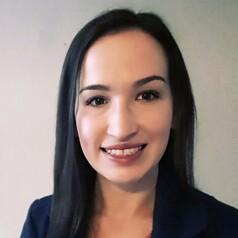
Kathryn Loog
PhD Candidate, Industrial Engineering, Polytechnique Montréal
I am a PhD candidate in industrial engineering and a member of CIRAIG, the International Reference Center for Life Cycle Assessment and Sustainable Transition. My research focuses on the impacts of land use, life cycle assessment, and the planetary boundaries. Prior to returning to school for a PhD, I worked as an ecodesign and life cycle assessment specialist in industry.
Less ![]()
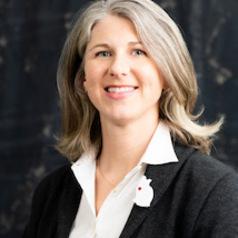
Kathryn MacKay
Senior Lecturer in Bioethics, University of Sydney
Areas of Interest: Social & political philosophy; Feminist philosophy; Normative Ethics; Applied ethics
I am a Senior Lecturer at Sydney Health Ethics, University of Sydney, Australia, where I teach introduction to moral philosophy and bioethical methodologies. My research focusses on issues of human flourishing, at the intersection of feminist theory, ethics, and political philosophy. I am particularly interested in questions related to power, health & well-being, identity & group relations, and personal & group agency. I am currently developing an account of public heath virtue ethics, and am part of a team exploring theories of reproductive autonomy in the context of genetic carrier screening.
Less ![]()
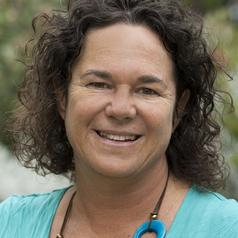
Kathryn McMahon
Deputy Director, Centre for Marine Ecosystems Research, and Associate Dean of Research, Edith Cowan University
I have three main streams of research in coastal biology and ecology largely focusing on seagrass ecosystems. I use a variety of tools and methods such as ‘manipulated’ and ‘observational’ field and laboratory studies using ‘eco-physiological’ and ‘molecular’ tools.
1. Human impacts in coastal ecosystems
Largely focusing on impacts through light reduction, climate change, and dredging
How do plants respond to different stressors (developing sub-lethal indicators)?
What levels of stress can they cope with?
What are the consequences of disturbance?
2. Seagrass-grazing interactions
How much is consumed?
How do plants cope with grazing?
3. Seagrass evolution and taxonomy
What are the evolutionary relationships in seagrasses, particularly Posidonia and Halophila?
Less ![]()

Kathryn McNeilly
Professor of Law, School of Law, Queen's University Belfast
Professor Kathryn McNeilly is a legal academic with expertise in the areas of international human rights law and international legal theory. Her work undertakes engagements with the theory and operation of human rights. Kathryn's recent research has explored how ideas of time and temporality can be used as tools to better understand the operation of human rights law internationally.
Kathryn is the author of a monograph titled Human Rights and Radical Social Transformation: Futurity, Alterity, Power which was shortlisted for the 2018 Hart-SLSA Early Career Prize. In 2019-20 Kathryn was awarded a Leverhulme Research Fellowship to investigate issues of time and materiality in international human rights law monitoring. In 2018 Kathryn was awarded the QUB Vice Chancellor's Early Career Research Prize. This University-wide Prize recognises a scholar whose research demonstrates outstanding significance and excellence in the first 5 years of their career.
Less ![]()
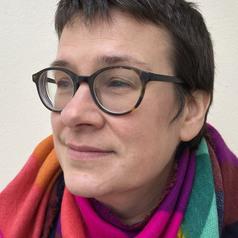
Kathryn Moore1
Senior Lecturer in Critical and Green Technology Metals, University of Exeter
Kate Moore is a geologist at the Camborne School of Mines, University of Exeter, UK. She has lectured on the subject of planetary geology since 1998, and extensively researched the geological processes, from mantle source to Earth's surface, that concentrate critical metals in ore deposits. She led a project to develop responsible and adaptable, small-scale mining solutions for complex ore deposits from 2016 to 2020 (IMP@CT; H2020 grant number 740311) and has recently completed a residency in Earth Humanities (NERC Discipline Hopping for Environmental Solutions grant ‘Mining uncommon Ground’).
Less ![]()

Kathryn Shamberger
Associate Professor of Oceanography, Texas A&M University
Dr. Shamberger is a chemical oceanographer whose research focuses on the ocean carbon cycle, its alteration by anthropogenic ocean acidification, and the impacts of ocean acidification on calcifying organisms and ecosystems, namely tropical and deep-sea coral reefs, and oyster reefs. Her research involves investigating the natural cycling of carbon dioxide in coral reef and coastal ecosystems, the sensitivity of these systems to ocean acidification and other anthropogenic stressors, and controls on marine calcification. Dr. Shamberger's research is largely field based and she has worked on reefs in the Caribbean, main Hawaiian islands, northwest Hawaiian islands, Emperor Seamount Chain, American Samoa, Palau, the Great Barrier Reef, Taiwan, and the Gulf of Mexico.
Less ![]()
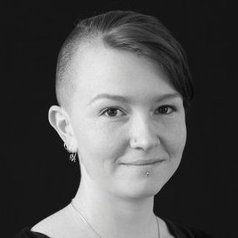
Kathryn Snow
I am an infectious disease epidemiologist working on hepatitis C and tuberculosis. I have a particular interest in health services access for vulnerable groups.
Less ![]()
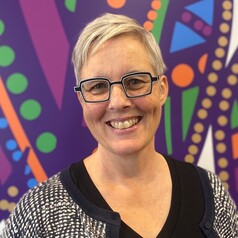
Kathryn Steadman
Associate Professor, School of Pharmacy, The University of Queensland
Kathryn is a pharmacist from the UK, who moved to Western Australia in 1999 and then to the University of Queensland in 2007. She teaches into the Bachelor of Pharmacy (Honours) in the areas of pharmaceutics, compounding and complementary medicines, and she teaches a course about clinical trials into the Master of Pharmaceutical Industry Practice. Kathryn is currently the Director of Teaching and Learning for the School of Pharmacy.
Following a number of years conducting research into plant biology, Kathryn's current research interests generally link back to plants in some way - for example the tobacco plants used for chewing and smoking, the plant gums used to thicken medicines and lubricate swallowing, and the plants used in complementary medicines. Many of her projects develop in response to requests for help from healthcare professionals, and so she has a strong focus on answering clinical questions using pharmaceutical science methods. Kathryn has published over 140 journal articles across a wide range of topics, and she has supervised 28 PhD students and over 60 undergraduate independent research student projects.
Less ![]()
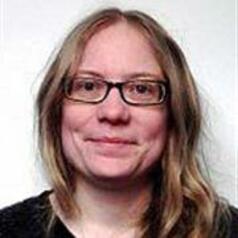
Kathryn Telling
Lecturer in Education, University of Manchester
Kathryn Telling is a Lecturer in Education at the University of Manchester. She researches the different values that students and academics bring to their educational endeavours and how they manage value conflict, and explored this in depth in her recent book The Liberal Arts Paradox in Higher Education: Negotiating Inclusion and Prestige.
Less ![]()
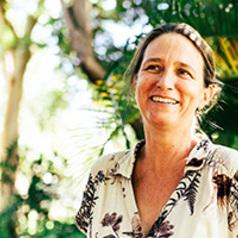
Kathryn Thorburn
Translational Fellow Nulungu Research Institute, University of Notre Dame Australia
Kathryn has been a researcher in the Kimberley for the previous 18 years, working across a number of discipline areas including Indigenous policy and its impacts, Indigenous governance and empowerment, exploring opportunities for traditional owners in the emerging renewables space, social histories of ALT reserves in Broome and remote child health services. She has worked with Aboriginal Community Controlled Organisations for a number of years, including at Marninwarntikura Fitzroy Women's Resource Centre in Fitzroy Crossing, and more recently as Senior Policy Advisor to the CEO of Nyamba Buru Yawuru in Broome.
Less ![]()
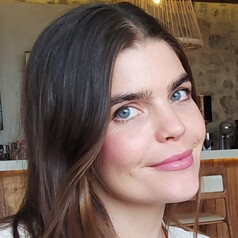
Kathryn Watt
Research Manager, The Asenze Project, University of KwaZulu-Natal
Kathryn Watt is a researcher based at the Centre for Rural Health, University of KwaZulu-Natal. Kathryn holds an MA in sociology from Stellenbosch University and has work experience at the DSI-NRF Centre of Excellence in Human Development at the University of the Witwatersrand and the South African Human Sciences Research Council. Her work has primarily focused on early childhood development and adolescent health and wellbeing in resource-constrained contexts.
Less ![]()


Kathy Boschen
Research Associate, Casual Academic, PhD Candidate, Flinders University
Kathy is a PhD Candidate with the College of Medicine and Public Health, Flinders University and is researching the formal supports of NDIS Participants with Primary Psychosocial Disabilities and life-limiting diagnoses.
Kathy is also a casual academic and research officer with the Colleges of Nursing and Health Sciences and Psychology, Education and Social work. She is a member of the Flinders University Research Centre for Palliative Care Death and Dying.
Kathy has extensive experience with the NDIS, having worked with the National Disability Insurance Agency, the NDIS Quality and Safeguards Commission, the Flinders University Transition Support Project, the Aboriginal Health Council of South Australia’s - NDIS Ready Project and with an NDIS Provider. Prior to this Kathy worked in the health, mental health and justice sectors.
Recent publication
Boschen, K., Phelan, C., & Lawn, S. (2022). NDIS Participants with Psychosocial Disabilities and Life-Limiting Diagnoses: A Scoping Review. International Journal of Environmental Research and Public Health, 19(16), 10144. https://doi.org/10.3390/ijerph191610144
Less ![]()
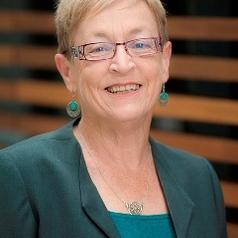
Kathy Eagar
Adjunct professor in the School of Clinical Medicine, UNSW Sydney
Professor Kathy Eagar is Adjunct Professor in the School of Clinical Medicine, Faculty of Medicine and Health, University of New South Wales and Foundation Professor of Health Services Research and Foundation Director of the Australian Health Services Research Institute (AHSRI) at the University of Wollongong Australia.
Kathy has over 40 years experience in the health and aged care systems, during which she has divided her time between being a clinician, an executive manager and a health academic. She has authored over 500 papers on management, quality, outcomes, information systems and funding of the Australia and New Zealand health and community care systems.
Kathy is an Honorary Fellow of the Australasian Faculty of Rehabilitation Medicine (Royal Australasian Collage of Physicians) and is an Honorary Life Member of the Australian Healthcare and Hospitals Association. In 2015 Kathy was awarded the biannual Professional Award of the Health Services Research Association of Australia and New Zealand (HSRAANZ).
Less ![]()

Kathy Hampson
Senior Lecturer in Criminology, Aberystwyth University
I worked for a large city Youth Offending Team for several years as a case manager, and while there, completed my PhD looking at the emotional intelligence of children who have offended. Subsequently relocating to a tiny village in Wales, I worked on a Welsh Government/Youth Justice Board Cymru project looking into the resettlement practice of YOTs across North Wales (the ‘Resettlement Broker’ project), before moving into academia, lecturing in Criminology at Aberystwyth University. My writing and research covers a variety of areas within youth justice, such as systems/processes, resettlement policy and practice, the voice of the child/collaboration, Child First justice, and the effects of Covid-19 on justice-involved children.
Less ![]()

Kathy Hibbert
Distinguished University Professor and Associate Dean Teacher Education, Western University
After teaching in the public school system in Ontario for nearly two decades, I completed a PHD in Education focused on how we teach and learn within the virtual world. For the past twenty years, I have conducted research that has looked deeply into communication with these 21st C skills across professions. As a scholar cross-appointed to the Dept of Medical Imaging, I have led educational projects in online learning and pedagogies for the International Atomic Energy Agency around the world. I also led the Educational Research response in Fukushima following the Nuclear Accident. This led to expansion of the teaching and learning framework to include a 'trauma and violence' informed model. Working with colleagues in Mental Health, we provided the first online Mental Health Literacy for educators course in Canada, and provided free, validated, virtual resources for teachers to support their knowledge and ability to care for themselves and their students.
I have worked with teams to design innovative platforms for particular audiences; I have taught for twenty years in courses on multiple platforms - including 'Learning Management systems that are not pedagogically helpful.
Less ![]()
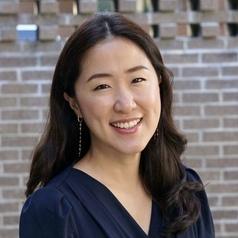
Kathy L. Lee
Assistant Professor of Gerontological Social Work, University of Texas at Arlington
Dr. Kathy Lee, a scholar and educator in gerontological social work, is committed to advancing research that fosters healthier and more equitable communities for vulnerable and marginalized older adults. Her primary focus lies in exploring innovative and non-pharmacological interventions for individuals living with Alzheimer's disease and related dementias, as well as providing support for their family caregivers. Dr. Lee's research extends to identifying health disparities within aging populations, with a particular emphasis on underrepresented groups.
Less ![]()
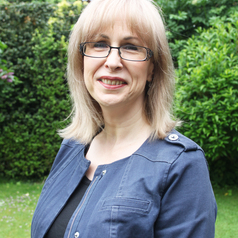
Katie Bailey
Professor Of Management, University of Sussex
Katie (nee Truss) joined Sussex University in November 2013 as Professor of Management. Previously, she held several roles at the University of Kent and Kingston University. She has a PhD from London Business School where she has also recently been Chief External Examiner for the Global MBA programme.
Katie has written numerous articles on meaningful work, employee engagement and strategic human resource management. Her work has appeared in the Harvard Business Review and the Sloan Management Review, and she has been commissioned to write reports and thought-pieces for the Chartered Institute of Personnel and Development. She is frequently invited to present her work at practitioner conferences or to chair events around the world, and has undertaken a range of consultancy, training and development projects.
She is currently Non-Executive Director of the Involvement and Participation Association and Honorary Fellow at the Institute for Employment Studies. Previously, she was Co-Chair of the Steering Committee of the 'Guru Group', part of the Engage for Success movement.
Katie has led large research projects funded by industry, the CIPD, the ESRC, and the NIHR. She is Associate Editor of Human Resource Management Journal and member of the Editorial Board of several other journals. Currently, she is leading a study of 'purposeful leadership' funded by the CIPD, and is co-editor of the Oxford Handbook of Meaningful Work due to be published in 2017.
She is a Fellow of the Academy of Social Sciences, an Academic Fellow of the CIPD, a Fellow of the Royal Society of Arts, and Fellow of the Higher Education Academy. She is also an Associate Member of the Assocation for Coaching, and is entered in the register of qualifications in test use (A and B) of the British Psychological Society.
Less ![]()
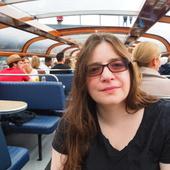
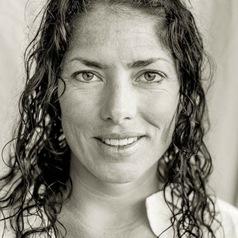
Katie Conlon, Ph.D.
Researcher, Portland State University
Katie Conlon, Ph.D., is a researcher, storyteller, director, poet, explorer, and peace builder. She is profoundly interested in bridging the social-ecological divide and finding ways for modern society to reconnect with nature, reducing harmful elements such as waste, pollution, and environmental degradation. She is a National Geographic Explorer (2020- ), a Royal Geographical Society Fellow (2024- ), a Fulbright Research Fellow (2018-19), a National Science Foundation Fellow (2014-19), and researcher from Portland State University (USA). Conlon is the Director and Founder of Ecoseva Institute, a US nonprofit that focuses on service for the earth. Currently, she the lead for a National Geographic Explorers project on plastic waste reduction in the Himalayas, and advises for numerous local nonprofits on plastic pollution efforts, too. Her research in the past has been supported through Fulbright; the National Science Foundation; and USFS.
Conlon has a Ph.D. in Urban Studies from Portland State University (her dissertation was on plastic waste issues in the global south) (2014-2020); a Masters in International Peace Studies from Notre Dame (2012-14) (thesis on climate change and peacebuilding); and a BA from the University of San Diego in International Communications and Peace & Justice Studies (2001-2005).
LinkedIn: https://www.linkedin.com/in/katie-conlon-a2879bb/
Less ![]()
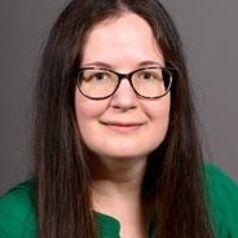
Katie Corcoran
Associate Professor of Sociology, West Virginia University
Dr. Corcoran received her Ph.D. in Sociology from the University of Washington as well as an M.A. in Sociology and an M.A. in International Studies (Comparative Religion). She is a theoretical generalist who studies social groups and networks as links between macro- structures and micro- attitudes and behaviors. Her research applies these lenses to several empirical subfields—organizations, culture, crime/deviance, religion, emotion, inequality, and social movements. She is interested in exploring the processes by which individuals join and leave groups, invest time and resources in them, and come to hold their norms and values. In order to test theoretical predictions, she draws on individual-level, cross-organizational, regional, and national data and uses advanced quantitative as well as qualitative methodologies.
Dr. Corcoran has published articles in journals such as Social Science Research, Sociological Inquiry, Sociological Forum, the British Journal of Social Psychology, the Journal for the Scientific of Religion, and Rationality and Society and recently published the book Religious Hostility: A Global Assessment of Hatred and Terror with Rodney Stark. She is currently completing a book manuscript on megachurches with James K. Wellman and Kate Stockly-Meyerdirk entitled High on God: How the Megachurch Conquered America.
Less ![]()

Katie Devenish
Postdoctoral Researcher in Sustainable Land Use, University of Manchester
I am currently working as a postdoc at Manchester University on the Sustainable Forest Transitions project. Me and my colleagues are exploring the drivers behind the patterns of reforestation occurring in many parts of the tropics and sub-tropics, and the social and environmental impacts of these changes.
I am also very interested in the impacts of mining as a land use. During my PhD I investigated the impacts of mining on the forests, and by proxy, biodiversity of Madagascar, and the effectiveness of measures to mitigate that impact, including biodiversity offsetting.
In my research, I use spatial and statistical methods to investigate the causes and effects of different land uses and conservation policies. The aim is to find pragmatic solutions which balance the needs of humans with that of the environment.
Less ![]()
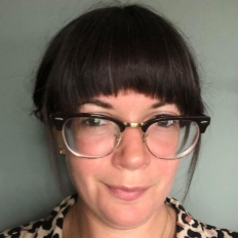
Katie Donington
Senior Lecturer in Black, Caribbean, and African History, The Open University
Katie Donington is a Senior Lecturer in Black, Caribbean, and African History at the Open University. She researches the history and legacies of British Caribbean transatlantic slavery. She is also interested in the representation of slavery in public history.
She has a PhD in History (UCL), MA in Art Gallery and Museum Studies (University of Leeds) and BA in English Literature and History (University of Leeds). Between 2009-2015 her doctoral and post-doctoral research was with the Legacies of British Slave-ownership project (UCL) with a focus on slave-ownership in Britain and Jamaica.
Her publications include (co-authored with Catherine Hall, Nick Draper, Keith McClelland and Rachel Lang) Legacies of British Slave-ownership: Colonial Slavery and the Formation of Victorian Britain (Cambridge University Press, 2014); (coedited with Ryan J. Hanley and Jessica Moody) Britain's History and Memory of Transatlantic Slavery: The Local Nuances of a "National Sin" (Liverpool University Press, 2016); The Bonds of Family: Slavery, Commerce and Culture in the British Atlantic World (Manchester University Press, 2019).
She has worked with a variety of local and national museums, art galleries and heritage organisations as a curator and an advisor. In 2018 she co-curated 'Slavery, Culture and Collecting' at the Museum of London Docklands. She served as an advisor on the National Trust project 'Colonial Countryside' between 2018-21. She is regularly invited to offer expert opinion to the press and has contributed to radio and television programmes on the topic of slavery.
Her research and public engagement have been funded by the Economic and Social Research Council, Arts and Humanities Research Council, Arts Council England, and the British Academy.
Less ![]()


Katie Ekberg
Senior Lecturer, College of Nursing and Health Sciences, Flinders University
My research focuses on examining real-world communication in healthcare, exploring psychosocial aspects of health, and improving healthcare services. My research has spanned a range of healthcare settings, including primary care, health helplines, neurology, cognitive behavioural therapy, audiology, speech pathology, and palliative care.
Less ![]()
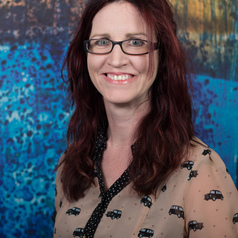
Katie Ellis
Professor in Internet Studies, Curtin University
Dr Katie Ellis is Professor in Internet Studies and Director of the Centre for Culture and Technology at Curtin University where I research disability and digital media.I have worked with people with disabilities in the community, government, and in academia and published widely in the area of disability, television, and digital and networked media, extending across both issues of representation and active possibilities for social inclusion.
Less ![]()
- Market Data





















